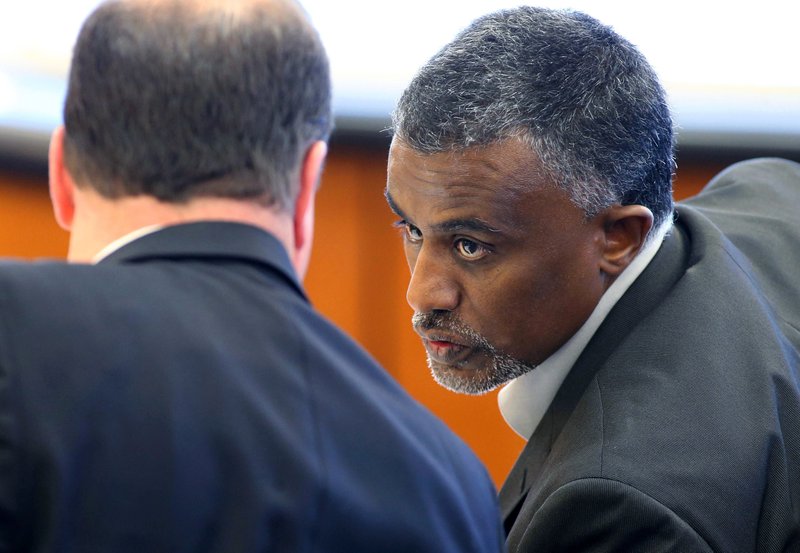RENO, Nev. -- A private autopsy is planned at hospital expense to determine how a 20-year-old college freshman died while on life-support during an end-of-life court battle, the family's lawyer said Tuesday.
Aden Hailu of Las Vegas died about 4:30 p.m. Monday at St. Mary's Regional Medical Center in Reno, said David O'Mara, the attorney representing Hailu's father and family.
Hailu never woke from anesthesia after surgery in April, and doctors first pronounced her dead May 28, but her father, Fanuel Gebreyes, went to court to delay removing her from life-support.
O'Mara said hospital officials told Gebreyes on Monday that Hailu's heart stopped and resuscitation efforts failed.
The family is making arrangements for a private autopsy, O'Mara said.
The Washoe County coroner was notified but didn't plan a medical examination because the death was at the hospital and a public autopsy isn't required, said Lynn Sack, aide to Coroner Ellen Clark.
"The hospital asked the family to have an autopsy done," O'Mara said. "In this situation, we think an autopsy will be helpful to find out the true cause of death, and it may provide guidance about how these cases are handled in the future."
St. Mary's spokesman Jamii Uboldi confirmed that the hospital has agreed to pay for the private autopsy.
"Saint Mary's extends its heartfelt condolences to the family of Ms. Hailu," Uboldi said in a statement. The statement said officials couldn't comment further, citing patient privacy provisions of the 1996 Health Insurance Portability and Accountability Act, or HIPAA.
Uboldi said administrators need Gebreyes or a legal representative to allow them to talk about Hailu's death. O'Mara said Gebreyes was considering the request.
Two medical ethics and law experts reached by The Associated Press said the hospital's interpretation is proper. Regulations about the release of medical records apply for 50 years after a person's death, said Timothy Jost, law professor emeritus at Washington and Lee University, and Arthur Caplan, at New York University's Langone Medical Center.
Gebreyes was at the hospital when his daughter died, the attorney said, and he noticed Hailu was having trouble breathing -- even with a ventilator. But Gebreyes wasn't in the room when the hospital staff later told him that monitors signaled that Hailu's heart had stopped.
Hailu was a freshman at the University of Nevada, Reno. St. Mary's said in court filings that she suffered severe low blood pressure and a lack of oxygen to the brain April 1 during surgery to remove her appendix and explore the cause of abdominal pain.
The Nevada Supreme Court ruled in November that Washoe County Family Court Judge Frances Doherty was too quick to reject the family's bid to keep Hailu on a ventilator and intravenous fluids.
The Supreme Court sent the case back to Doherty for more hearings about what justices acknowledged was an "extraordinarily broad standard": Whether St. Mary's met state law requiring a finding that irreversible cessation of brain stem functions met "accepted medical standards" that are "uniformly applied among the states" that enact the Uniform Determination of Death Act.
Nevada is among 37 states and the District of Columbia with laws based on the act, according to the National Conference of Commissioners on Uniform State Laws.
Last week, the judge gave St. Mary's the go-ahead to conduct brain wave tests that the hospital said would confirm doctors' determinations that Hailu was brain-dead and wouldn't recover. But the judge indicated she wouldn't rule on the question of life or death until at least Jan. 22.
O'Mara said Tuesday that it didn't appear new EEG tests had been performed, but he had no more immediate information.
O'Mara earlier accused the hospital of wanting to end life-support to cut costs. He said Gebreyes felt that as long as there was a chance Hailu was alive, the hospital should treat her or find a place that would.
Attorneys representing the hospital argued that it was unfair to force the hospital to treat Hailu indefinitely.
The hospital maintained that money wasn't the issue but that administrators needed to respect doctors' medical judgment.
St. Mary's doctors said three EEG tests conducted during the first two weeks of April showed declining brain function, and no EEG tests were performed after that.
Gebreyes then refused to consent to new brain wave tests. He insisted that Hailu needed treatment, not tests, including thyroid medication and a tracheostomy so she could receive nutrition through her throat, not just intravenous fluids.
The judge told the father that he could move Hailu to another facility if he wanted, but O'Mara has told AP that the family couldn't immediately find a place to take her.
A Section on 01/06/2016

